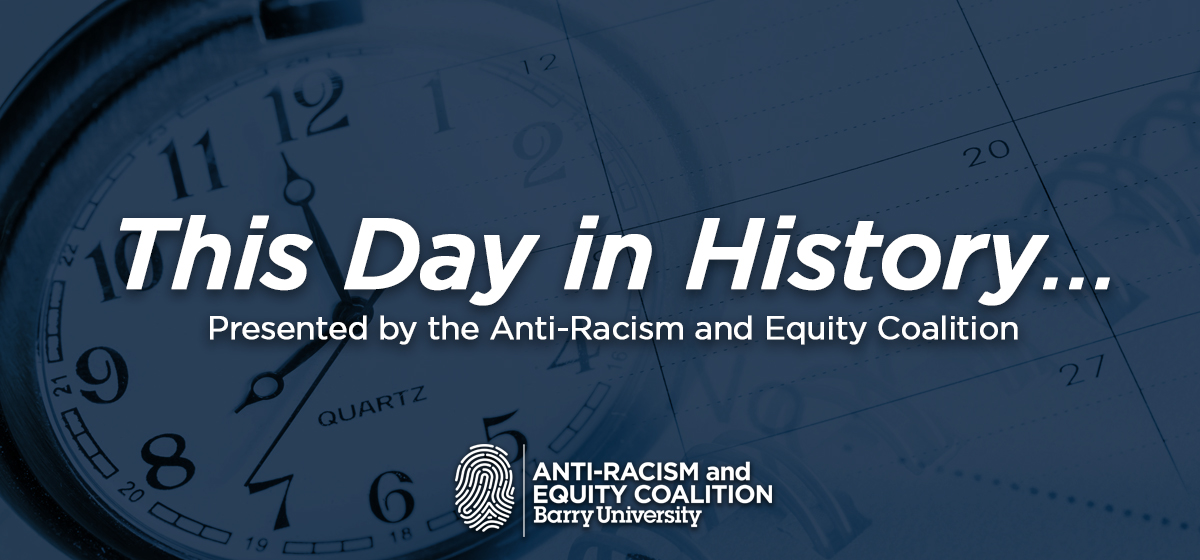
Community EngagementAugust 9: This Day In History
Every August 9, since 1994, the United Nations General Assembly celebrates International Day of the World’s Indigenous Peoples. This day of tribute recognizes the great cultural and ecological contributions of Indigenous communities around the globe, and it raises awareness about long histories of injustice and inequality faced by these populations.
More than 476 million Indigenous people live in 90 countries around the world, accounting for roughly 6.2 percent of the global population. In the United States alone, there are 574 federally recognized American Indian and Alaskan Native communities, each with its own unique heritage, culture, worldview, and relationship to natural resources. While some of these Indigenous groups continue to occupy what remains of their original land base, many others live in territories created by the federal government after their forcible relocation. Such histories of displacement and violence are ubiquitous among global Indigenous peoples, and their communities continue to suffer systemic injustices in the modern world. Government control over land and resources, discrimination, inadequate access to education and health care, financial instability, and, in many cases, extreme poverty are persistent barriers facing Indigenous people around the globe. In the past year, Covid-19 has only exacerbated these inequities and illuminated an urgent need for a worldwide commitment to a new social contract that preserves and uplifts Indigenous people.
That is why the theme for the 2021 International Day of Indigenous Peoples is “Leaving No One Behind: Indigenous Peoples and the Call for a New Social Contract.” On August 9, Barry University’s Anti-Racism and Equity Coalition joins the United Nations and countless others around the world in calling for a reimagined, cooperative, and actionable social contract that prioritizes equality and respect for Indigenous people.
What is a social contract?
Societies operate through both written and unwritten rules. These unwritten rules are known in political philosophy as social contracts. In everyday life, you probably adhere to many social contracts, such as raising your hand in class to signal that you’d like to speak or waiting in line to order from your favorite take-out restaurant. In a broader context, social contracts enable societies to work toward mutual social and economic benefits. Many Indigenous communities are exemplars of such peaceful and productive living; and yet, these same communities have been largely left out of our global social contract, unable to take part in key decision-making processes or share their insights on a worldwide stage.
In countries where colonialism drove Indigenous people from their lands and resources, where Native languages and ways of life were disparaged and belittled, and where entire communities were barred from political and economic activities, the social contract excluded Indigenous populations from the start. Various societies have worked to address this history of marginalization, advocating for truth and reconciliation efforts, as well as legislative reforms. Such efforts—including the 2007 United Nations Declaration on the Rights of Indigenous Peoples—have helped pave the way for a new future of widespread systemic change through a collectively envisioned social contract.
How can you help?
- Learn more about Indigenous experiences from people themselves.
- Celebrate this International Day of the World’s Indigenous Peoples by learning more about the unique experiences, traditions, and cultures of various communities. Get started with this collection of free videos.
- Examine cultural appropriation practices and refrain from them.
- As we think about issues of equity facing Indigenous people in the United States and beyond, recognizing the pervasiveness of appropriated, culturally significant images, practices, and names is critical. The documentary film More Than a Word explores the historical context of Native American cultural appropriation by analyzing the world of competitive athletics and the use of mascots, specifically by Washington’s football team. You can view this powerful documentary via Barry’s Library Access to Kanopy’s streaming platform.
- Learn more about the issues facing Indigenous people around the globe.
- The UN offers further reading about inequities facing individual groups of Indigenous people as well as broader statistics.
- Advocate for change in academic institutions.
- Explore policies and practices that could address inequities in access to education for Native students. Start with Beyond the Land Acknowledgement: College “LAND BACK” or Free Tuition for Native Students.




















